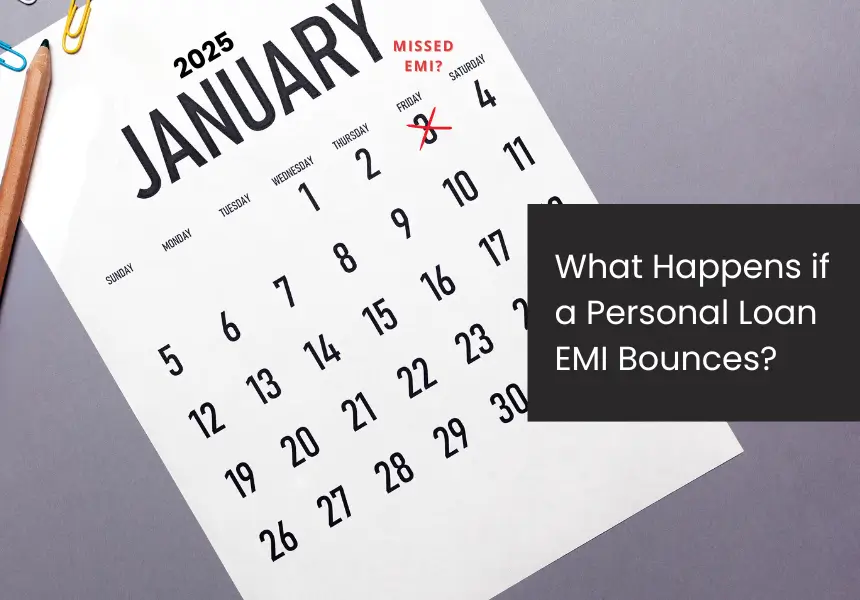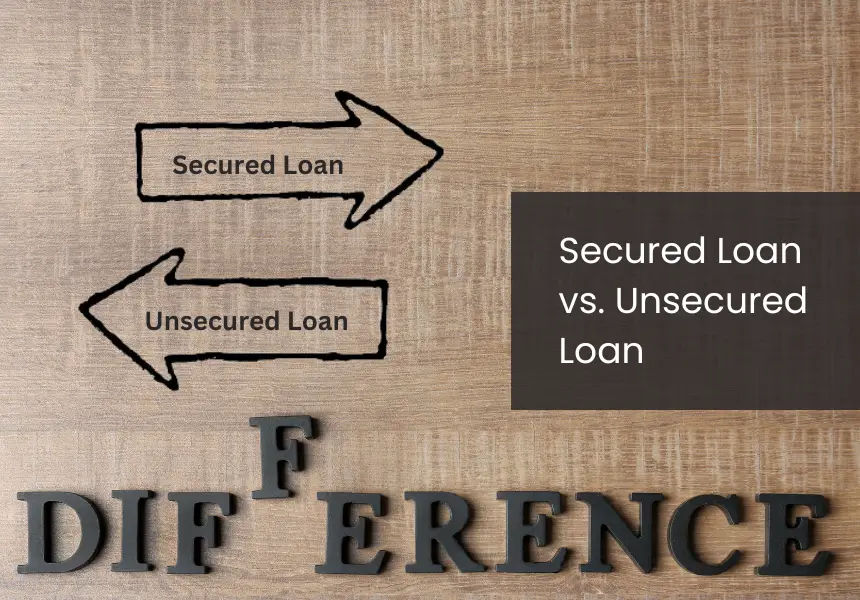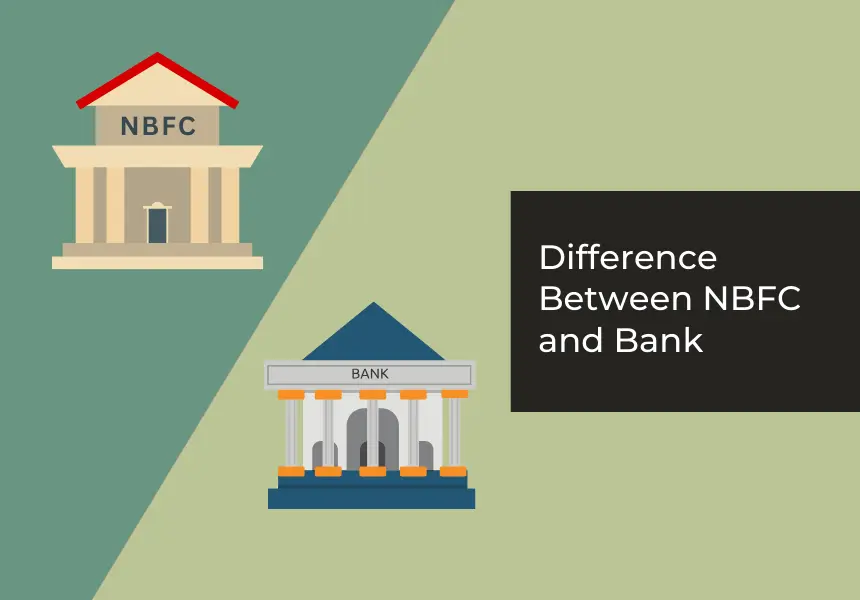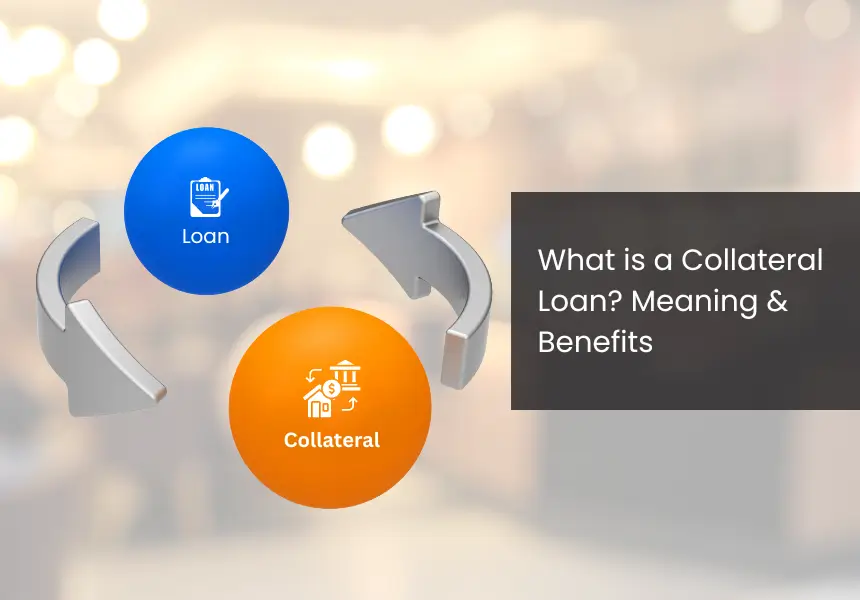
When you opt for a personal loan, paying your monthly EMIs on time becomes a big part of managing your finances. However, there can be times when an EMI payment may fail or “bounce”. This can happen for various reasons, such as insufficient funds in your account or technical issues.
So what exactly happens when an EMI bounces? While it may seem like a minor setback, it can lead to significant consequences, including penalty charges, a decrease in your credit score and even legal actions if left unresolved for too long. A series of bounced EMIs can also affect your financial stability and make it more difficult to access credit in future.
Here, we have explained what happens if your personal loan EMI doesn’t go through, the EMI bounce charges, and what you can do to avoid it.
But first, let’s understand what an EMI bounce means.
What is an EMI Bounce?
An EMI bounce is a situation where a borrower fails to make their scheduled loan repayment on time. This can happen due to various reasons, including insufficient funds, technical issues, or simple oversight. When the EMI is not successfully paid on the due date, it leads to what is called a “bounce.”
EMI bounce can be of two types:
1. Major Defaults:
A major default occurs when the EMI payment has been missed for 90 days or more. After this period, the lender may classify the outstanding loan amount as a non-performing asset (NPA). Depending on the likelihood of recovering the amount, the loan is further categorized into loss assets, doubtful assets, or substandard assets. This kind of default can have serious consequences for the borrower’s credit history and may lead to legal actions.
2. Minor Defaults:
If the EMI remains unpaid for less than 90 days, it is considered a minor default. While still problematic, minor defaults are generally less severe. If the borrower takes corrective action promptly, such as making the payment or contacting the lender, there might not be any long-term impact on their financial standing.
What are the Consequences of a Personal Loan EMI Default?
Missing a personal loan EMI can lead to several problems, both immediately and in the long run. Here’s a simple breakdown of what can happen if you default on an EMI:
1. Your Credit Score Drops
When you miss an EMI, it gets reported to credit bureaus (like CIBIL). If you miss multiple payments, your credit score will drop. A lower score makes it harder to get loans or credit cards in the future, and if you do get approved, the interest rate will likely be higher.
2. Penalty Fees
Each missed payment can come with a penalty. These charges are usually between 1% and 3% of the EMI amount. The longer you miss payments, the more these penalties add up, increasing the total amount you owe.
3. Higher Interest Rates
A low credit score from missed EMIs can cause lenders to offer you loans at higher interest rates in the future. Even if your income is good, you may face higher borrowing costs because lenders see you as a higher risk borrower.
4. You Could Lose Your Assets (If Collateral Is Involved)
If your personal loan is secured with collateral (like a vehicle, jewellery, or investment), the lender may take it in their possession if you don’t pay your EMIs. This could mean losing valuable assets.
5. Legal Action
If you continue to miss payments for several months, the lender might take legal action to recover the money. This could involve sending collection agents or even taking you to court. In some cases, you might be forced to declare bankruptcy, which can hurt your ability to get loans in the future.
6. Negative Impact on Your Reputation
Repeated missed payments can damage your reputation with the lender and other financial institutions. This makes it harder to get approved for future loans or credit, and it might even affect other parts of your financial life.
How can I avoid an EMI default?
An EMI default can significantly impact your financial health, credit score, and lender relations. Here are some strategies to ensure you never miss an EMI payment:
1. Plan Your Finances Effectively
You must track your income and expenses to allocate funds for loan repayment. This ensures that you are financially prepared to meet EMI commitments. You must also borrow only what you need and can afford to repay comfortably. Going beyond what you can repay can increase the risk of default.
2. Automate Your Payments
You must set up an auto-debit facility with your bank to ensure timely EMI payments directly from your account. If you prefer manual control over your repayments, you can set reminders for payment due dates and maintain a sufficient account balance to avoid missing any payments.
3. Maintain a Financial Buffer
It is also beneficial to keep emergency funds or a buffer amount in your bank account. This can help you pay for unexpected expenses or during delays in income, ensuring that your EMIs are covered.
4. Communicate with Your Lender
If you’re facing financial difficulties, discuss your situation with your lender. They may offer solutions like restructuring the loan or giving you a little extra time. However, this may vary, depending on the lender.
5. Monitor Your Accounts Regularly
You must regularly check your account balance and transactions to avoid discrepancies or failed payments. You must also update your payment details immediately if you change your bank account or card to prevent any payment issues.
Conclusion
Missing a personal loan EMI can have serious consequences, such as penalties, a drop in your credit score, and difficulty in getting loans in the future. It’s important to act quickly if this happens by making arrangements to pay the overdue EMI, speaking with your lender to discuss options, or exploring ways to make repayment easier. Taking steps like maintaining a budget, setting reminders, or automating payments can help you avoid such situations altogether.
To stay on top of your finances, having a reliable and flexible lending partner can make all the difference. Are you looking for convenient and instant personal loans? LoanTap has got you covered! With loan amounts up to ₹10 lakhs, flexible repayment options and minimal paperwork, LoanTap makes borrowing a breeze.
Frequently Asked Questions
What are personal loan EMI bounce charges?
Personal loan EMI bounce charges are penalties imposed by the lender when an EMI payment fails. These charges vary depending on the lender and are usually a fixed fee or a percentage of the EMI amount.
What happens if personal loan EMI is not paid?
If you fail to pay your EMI, you may face late payment penalties, a drop in your credit score, and notices from the lender. Repeated defaults can lead to legal action or loan recovery measures.
Does cheque bounce affect the CIBIL score?
Yes, if the bounced cheque is for an EMI payment, it can negatively impact your CIBIL score as the default is reported to credit bureaus.
How does a moratorium differ from an EMI bounce?
A moratorium is a pre-approved pause on EMIs granted by the lender, while an EMI bounce is a failure to pay without prior arrangement.
What documents should I keep to avoid disputes over missed EMIs?
Maintain records of payment receipts, bank statements, and communication with your lender to avoid misunderstandings and disputes.








